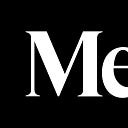Why this might be the “immigration election”
🗳️ We’ve got 20 days until the U.S. presidential election
Issue #186: untangling presidential immigration policy, and planning v. doing
By Harris Sockel
If you live in the U.S., in just about three weeks you’ll know who your next president is. So much (too much?) has been said about this election. It’s the vibes election. The dead heat election. The inflation election. And the immigration election.
That last one feels important: Historically speaking, we’re living through an immigration wave approaching levels we haven’t seen since the 1890s.
If you’ve been following the news and watching the debates (as I have), it can be hard to zero in on Trump and Harris’ specific policy differences on this issue. In the September debate, “conversation” between Trump and Harris on immigration devolved into an exchange of pre-planned zingers. I get why candidates do this! But it doesn’t help clarify the issue.
Isaac Saul of the Tangle politics newsletter — which tries valiantly to be nonpartisan — published a breakdown of Trump v. Harris’ illegal immigration policies on Medium last month. In some ways, their policies are similar: Both are pledging to make it harder to get into the U.S. But their tactics differ:
- Harris focuses on increasing border security and asylum restrictions for those illegally crossing the border.
- Trump vows to undertake the “largest deportation plan in U.S. history” and said he’ll invoke the “Remain in Mexico” policy, which requires asylum seekers (who may be fleeing actual danger) to wait in Mexico until their court date.
Trump is right of center. Harris is center (though in the past she’s been more center-left). Does that track with your understanding? I’m genuinely curious what you think, because there’s a lot of doublespeak out there.
I think there’s a deeper issue, too, around how we got here and why this is such a fraught issue in the U.S. For more on that, I recommend this essay by American Studies PhD Mark Tseng-Putterman. It was written during the Trump administration so it’s slightly outdated, but the history holds up. Tseng-Putterman traces 100 years of U.S. intervention in Central America, dating back to Theodore Roosevelt’s 1904 policy declaring America an “international police power.” He argues that the influx of immigrants we’re seeing now has its roots in U.S.-backed coups and unequal trade policies, writing: “U.S. empire thrives on amnesia.”
That feels true to me. When it comes to immigration (and so many other issues), we tend to fixate on current problems without examining the web of decisions that caused them.
Your daily dose of practical wisdom
Don’t confuse planning with doing.
Deepen your understanding every day with the Medium Newsletter. Sign up here.
Edited and produced by Scott Lamb & Carly Rose Gillis
Questions, feedback, or story suggestions? Email us: tips@medium.com
Read without limits or ads, fund great writers, and join a community that believes in human storytelling with membership.

